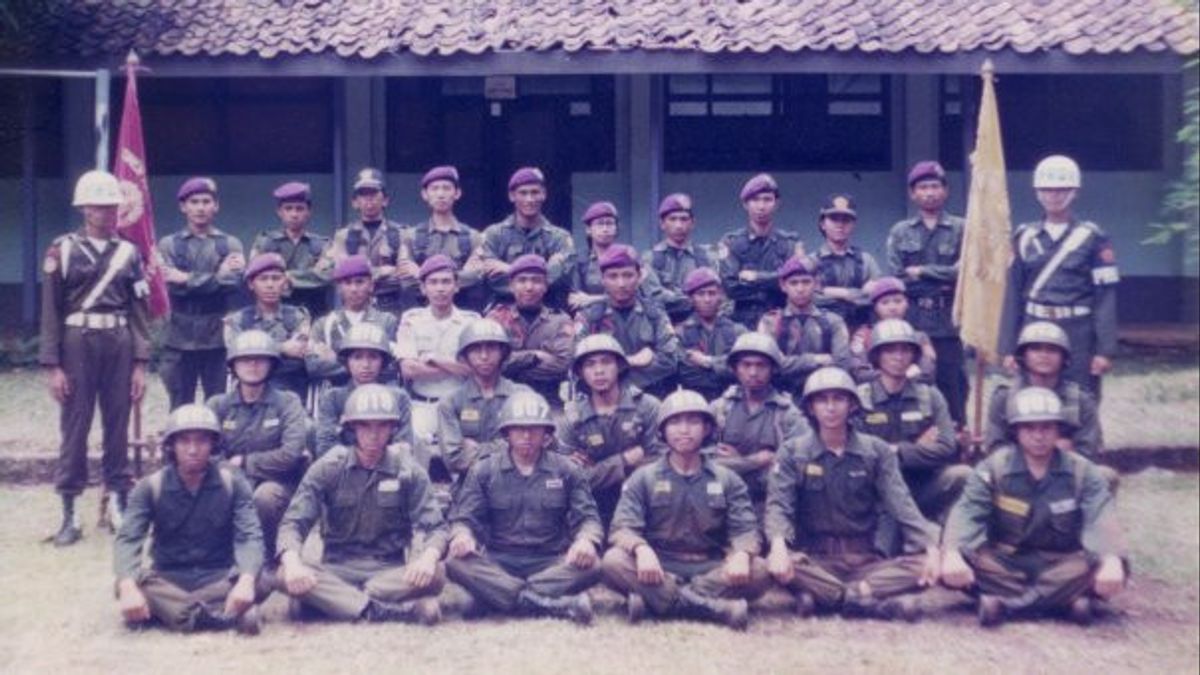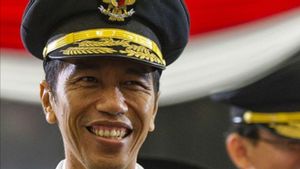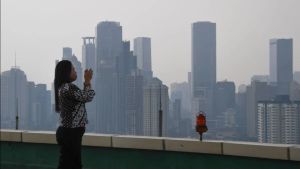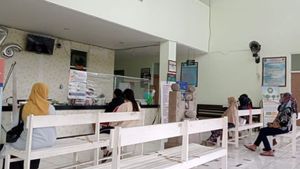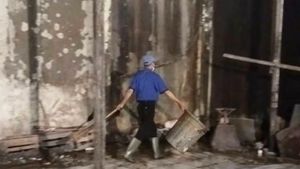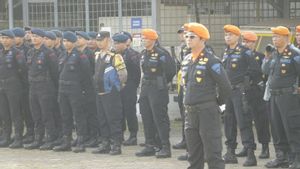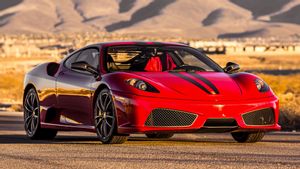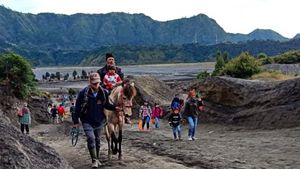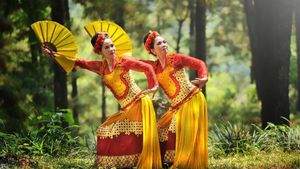JAKARTA - The Student Regiment (Menwa) has played a major role in the history of the nation. Two great generals AH Nasution and Ahmad Yani were the originators. Menwa was formed to prevent the Indonesian Communist Party (PKI) from establishing the Fifth Force, armed peasant-workers.
Menwa's achievements then increased after being involved in state defense operations: Trikora to G30S. However, not a few who hate Menwa. The arrogance of the Menwa members was the origin. Menwa often act more fierce than real soldiers.
The proposal of a PKI official, Dipa Nusantara Aidit, to form a Fifth Force consisting of 15 million armed peasant workers was opposed by many parties. Generals AH Nasution and Ahmad Yani became important figures who opposed.
Both were of the view that the formation of the PKI Five Forces was inefficient, even though the state did need a lot of volunteers. After all, it is not impossible that the armed civilian forces actually backfired on the Army, which could threaten the life of society.
The two generals were of the view that the PKI's move should be stopped. Menwa was chosen as one of the efforts to thwart the Fifth Force of the PKI in 1959. Thus, the corps formed by AH Nasution and Ahmad Yani emerged as a new force ready to thwart the agenda of the PKI.
Menwa then filled by elements of civil forces such as students who are trained to defend the country. A group of students who were involved then contributed greatly in perpetuating the function of Menwa as a manifestation of the defense and security system of the universal people.
“While studying and organizing at HMI, I continued to paddle a rickshaw in the afternoon until the evening for my tuition. Sometimes I use the rickshaw that my father rented. If I don't go to college, I also help take care of the garbage shop. During college I entered Rewa (Student Regiment). Which is now called Menwa.”
“Rewa's attributes are army-like, boots, a large belt, and wears a pet hat. I feel proud to dress like a soldier. Rewa was formed by General AH Nasution to deal with the rampant, arrogant, and arrogant Communist movement," explained Indonesian military leader Kivlan Zen as written by Titi Dewi in the book Kivlan Zen: Personal Memoranda, From Fitnah to Fitnah (2020).

Menwa's training pattern imitates military service in countries such as Israel, Korea, Taiwan, or Singapore. Menwa then developed rapidly. Almost every Indonesian university always has a Menwa. The Menwa Command Headquarters was also present at the university.
While the members are college students themselves. The only difference lies in the name Menwa in each region. Take for example, Menwa at a university in Jakarta is called Mahajaya, West Java is named Mahawarman, and so on.
The existence of Menwa is increasingly taken into account because the corps is often involved in efforts to defend the country. The most memorable involvement is Menwa's involvement in the war to seize West Irian from the Dutch.
The struggle for West Irian was then forever remembered as Tri Komando Rakyat (Trikora). The originator was the Great Leader of the Indonesian Revolution, Bung Karno. He initiated Trikora in North Square, Yogyakarta on December 19, 1961. Menwa became an important element involved in Trikora.
"Now I ask the brothers and sisters, the international community, why the Dutch have made West Irian a puppet of Papua. The Dutch instigated the people of West Irian to carry out a policy of dividing the sovereignty of the Republic of Indonesia by establishing the State of Papua, raising the Papuan flag, creating the zoogenamde national anthem," said Trikora Soekarno's speech at the time.
Menwa's ArroganceMenwa's involvement in national defense actions has also increased. Menwa continued to be a part of Dwikora until the crushing of sympathizers from the G30S. Therefore, being a member of Menwa was a prestige in his time. Moreover, Menwa is known to have close ties to the military. Which, the closeness makes the appearance and attitude of Menwa members like "real soldiers."
On the other hand, the militaristic appearance and procedures of the organization often make Menwa disliked by many parties. Student is one of them. Menwa is often considered to perpetuate violence in carrying out its actions. Especially during the New Order.
The student corps is often a tool of the government to suppress student movements that have the potential to disrupt the running of the government. As a result, hatred spread among the general students. Because of this, Menwa members are said to be fiercer than real soldiers.
“Those years were not the same as now in the New Order era, students couldn't ask anything. Gathered a little criticizing the government, definitely arrested. Especially if the title is political activity. The campus activity units that are active in opening critical discussion rooms are also always visited by intelligence. Not to mention that at that time on campus there was a Student Regiment (Menwa) which with its dashing style often challenged the defense on campus like soldiers. The 'real' soldiers are even more arrogant in their behavior,” said R. Valentina Sagala in the book Visiting the Heart, Caring for Life (2019).

The term "fierce than real soldiers" is not only developing among outside Menwa. People in Menwa also admit it. In fact, Menwa officials in universities in appearance look more like soldiers than students. The characteristics of the Menwa leader are that he looks comfortable with a mustache, has a loud voice, is fierce, and whose orders are difficult to refute.
In each exercise, the orders from Menwa officials are the most important to be heard. Like the supreme commander. No matter the rain, no matter the heat, when the higher-ups have spoken, the members must follow.
The military exercise can last for three months. On Saturday and Sunday. The total workout can be up to 160 hours. Even during each exercise, Menwa members are ready to hear all forms of orders and chatter from their superiors.
“However, the most fierce was Edie 'Boliem' Umaryanto, a member of the Menwa with a small round body like Bo Liem's dumplings from his city, Mojokerto. Mas Boliem often stepped on our backs so that our chests and stomachs were close to the ground when we lay down. Our uniforms are splattered with goat dung.”
“There are also many sympathetic Menwa members, including Sudaryanto, whom we dubbed 'Kopral' (later became Director of BRI); Mahmud Raimadoya -- a student from Ambon, and Abdul Waris Pattiwiri (a former Bulog official) from South Sulawesi," concluded a former student of the Bogor Agricultural University (IPB) in the New Order era, Yan Lubis in the book Baranangsiang (2019).
*Read other information about ECONOMY or read other interesting articles from Detha Arya Tifada.
Other MEMORIESThe English, Chinese, Japanese, Arabic, and French versions are automatically generated by the AI. So there may still be inaccuracies in translating, please always see Indonesian as our main language. (system supported by DigitalSiber.id)
